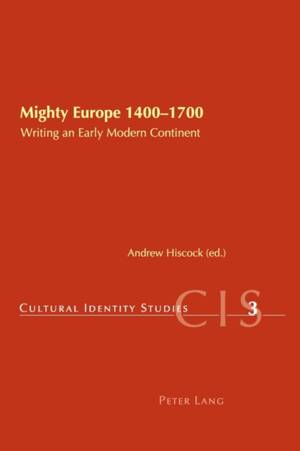
- Afhalen na 1 uur in een winkel met voorraad
- Gratis thuislevering in België vanaf € 30
- Ruim aanbod met 7 miljoen producten
- Afhalen na 1 uur in een winkel met voorraad
- Gratis thuislevering in België vanaf € 30
- Ruim aanbod met 7 miljoen producten
Zoeken
Mighty Europe 1400-1700
Writing an Early Modern Continent
€ 77,45
+ 154 punten
Omschrijving
In a series of ten historical and literary studies, this volume analyses the complex narrative of changing political identities in early modern Europe and maps out some of the dominant ways in which 'European-ness' was articulated in documents of the period. As the collection unfolds, its contributors explore these themes from a whole range of geographical perspectives, including not only accounts of British culture, but also those describing cultural relations and political identities with regard to Italy, Spain, France, the Papacy, the Netherlands, Bohemia and the Americas, for example. Concentrating upon early modern nations at a time when they were just beginning to formulate recognizable collective identities, the studies contained in this volume offer a clear picture of the ways in which current literary and historical scholarship may yield penetrating insights into the broader question of how the very idea of Europe evolved amongst its native inhabitants during the fifteenth, sixteenth and seventeenth centuries.
Specificaties
Betrokkenen
- Uitgeverij:
Inhoud
- Aantal bladzijden:
- 250
- Taal:
- Engels
- Reeks:
- Reeksnummer:
- nr. 3
Eigenschappen
- Productcode (EAN):
- 9783039110742
- Verschijningsdatum:
- 6/07/2007
- Uitvoering:
- Paperback
- Formaat:
- Trade paperback (VS)
- Afmetingen:
- 152 mm x 229 mm
- Gewicht:
- 340 g

Alleen bij Standaard Boekhandel
+ 154 punten op je klantenkaart van Standaard Boekhandel
Beoordelingen
We publiceren alleen reviews die voldoen aan de voorwaarden voor reviews. Bekijk onze voorwaarden voor reviews.










